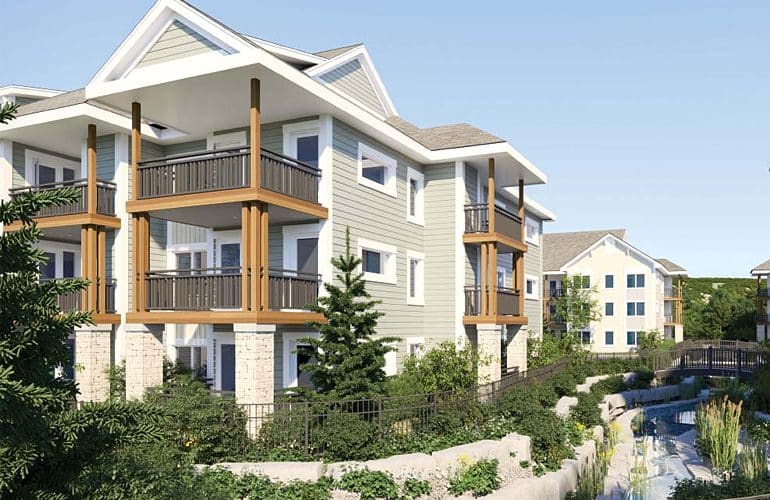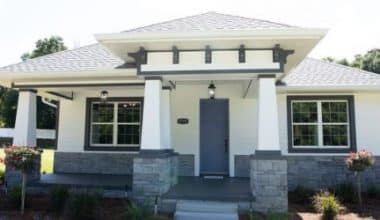How to buy rental property is a question that many people ask themselves when they’re considering investing in real estate. Buying rental property can be a great way to make passive income, build long-term wealth, and diversify your investment portfolio.
However, it’s not a decision that should be taken lightly. In this article, we’ll show you how to buy a rental property with no money down or bad credit. Whether you’re a first-time investor or a seasoned pro, this guide will provide you with the information you need to make an informed decision and be successful in your rental property investment.
Is Buying a Rental Property Worth It?
Buying a rental property can be a good investment, but it depends on various factors such as the location, property condition, and the current real estate market. Some of the potential benefits of buying a rental property include:
- Generating Passive Income: A rental property can provide a steady stream of income in the form of rent. This can be especially beneficial if the property is located in an area with high demand for rental properties.
- Building long-term wealth: As the property appreciates in value over time, rental property owners can see significant gains in the long-term. This can be especially true if the property is located in an area with a strong real estate market.
- Tax Benefits: Rental property owners can take advantage of certain tax deductions, such as mortgage interest and depreciation.
- Diversifying your investment portfolio: Adding a rental property to your investment portfolio can diversify your investments and help to spread risk.
How to Buy a Rental Property?
Here are the general steps to buy a rental property:
#1. Assess your finances
Before you start looking for a rental property, you’ll need to have a clear understanding of your financial situation, including your credit score, income, and debt-to-income ratio.
You’ll also need to have a clear idea of how much you can afford to spend on a rental property.
#2. Research the market
Before you make an offer on a rental property, it’s important to research the local real estate market.
Look at factors such as median home prices, rent prices, and vacancy rates in the area you’re considering.
You should also research the local zoning laws and regulations to ensure that the property you’re considering is allowed to be used as a rental property.
#3. Find the right property
Once you’ve assessed your finances and researched the market, you can start looking for the right rental property.
You can look at online real estate listings, work with a real estate agent, or attend open houses to find properties that meet your criteria.
#4. Make an offer
Once you’ve found the right property, you’ll need to make an offer to the seller. You’ll need to work with a real estate attorney to draft and review the purchase contract.
#5. Close the deal
Once your offer is accepted, you’ll need to close the deal. This typically involves paying closing costs, which can include things like appraisal fees, title insurance, and transfer taxes.
#6. Manage the property
Once you’ve purchased the rental property, you’ll need to manage it. This includes finding and screening tenants, collecting rent, and dealing with any repairs or maintenance that need to be done.
What is the 1% Rule For Rental Property?
The 1% rule is another guideline used by real estate investors to determine the potential profitability of a rental property.
The rule states that the monthly rent for a property should be at least 1% of the purchase price.
For example, if a property is purchased for $200,000, the monthly rent should be at least $2,000.
Similar to the 2% rule, this rule is intended to provide a rough estimate of the potential income from a rental property and help investors determine whether a property is a good investment.
It’s important to note that the 1% rule, like the 2% rule, is a guideline and not a hard-and-fast rule.
The 1% rule can be a useful starting point for evaluating rental properties, but it’s important to consider other factors such as location, local real estate market, condition of the property, and other expenses also play a role in determining whether a property is a good investment.
Additionally, many investors may aim for a higher rent-to-price ratio, like the 2% rule, to ensure a more comfortable margin of safety and a better cash flow.
How To Buy Rental Property With No Money Down?
There are several ways to buy rental property with no money down, but they may require more effort and creativity on the part of the investor. Here are a few options:
#1. Lease with option to buy
This approach involves renting a property with the option to purchase it at a later date. The renter will typically pay a higher rent in exchange for the option to buy.
#2. Partner with another investor
Two investors can join forces to purchase a property, with one investor providing the money for the down payment and the other investor providing the time and effort to manage the property.
#3. Hard money loan
These are short-term loans that are backed by the value of the property and not the creditworthiness of the borrower.
Hard money loans typically have higher interest rates, but they can be a good option for investors who have no money for a down payment.
#4. Owner financing
This is when the current owner of the property finances the sale, either by providing a mortgage or by holding the mortgage themselves.
#5. Government programs
Some government programs like HUD can help investors purchase rental properties with no money down, but these programs are typically only available to low-income buyers or buyers in certain geographic areas.
How Much Money Should I Have Before Buying Rental Property?
The amount of money you should have before buying rental property depends on several factors, such as the type of property, the location, and the current real estate market.
However, as a general rule, it’s recommended to have at least 20% of the purchase price saved as a down payment.
This will help you avoid paying private mortgage insurance (PMI), which can add to your monthly mortgage payments.
In addition to the down payment, you should also have enough cash reserves to cover at least 6-12 months of mortgage payments, property taxes, insurance, and other expenses.
What is the Formula for Buying Rental Property?
There is no one way to buy a rental property because it depends on the location, the type of property, and the real estate market at the time.
However, there is a general process for buying rental properties that includes researching, budgeting, and getting the right finance.
How Do You Make Money Owning a Rental Property?
Owning a rental property can generate income through rental income and appreciation. The most common way to make money through rental property is through rental income.
What’s a rental income? It is the money that a tenant pays to the landlord for the use of a property. This income can be used to cover mortgage payments, property taxes, insurance, and other expenses associated with owning the property.
Any remaining income after these expenses is considered to be cash flow and can be used for other expenses or saved for future investments.
In addition to rental income, owning a rental property can also generate income through appreciation.
Appreciation refers to the increase in value of a property over time. This can happen due to a variety of factors such as improvements made to the property, changes in the local real estate market, and overall economic conditions.
When a property increases in value, it can be sold for a profit, providing additional income for the owner.
How To Buy Rental Property With Credit Cards?
It’s possible to buy a rental property using credit cards, but it’s not a common or recommended method of financing a real estate investment.
Credit cards typically have high-interest rates and low credit limits, which may not be sufficient to cover the cost of buying a property.
Additionally, it can be challenging to qualify for a mortgage while carrying significant credit card debt.
If you’re determined to use credit cards to finance a rental property, here are a few options you could consider:
#1. Use credit card rewards
Some credit cards offer cash back or rewards points that can be used to cover expenses associated with buying a rental property. This can include closing costs, down payments, or renovation expenses.
#2. Take out a cash advance
Some credit cards allow you to take out a cash advance, which can be used to cover the down payment and closing costs of a property.
However, cash advances usually come with a high interest rate, so it’s important to be aware of the terms and conditions before taking out a cash advance.
#3. Use a credit card to make a down payment
Some lenders may allow you to make a down payment using a credit card. However, this is not common and it’s important to be aware of the terms and conditions before using this method.
#4. Use a credit card for short-term financing
Some investors use credit cards to finance a rental property for a short period of time. This could include a few months, while they arrange for a more traditional financing.
How To Buy Rental Property With Bad Credit
Buying a rental property with bad credit can be challenging, but it’s not impossible. Here are a few options to consider if you have bad credit and want to buy a rental property:
#1. Find a co-signer
If you have bad credit, finding a co-signer with good credit can help you qualify for a loan.
A co-signer is someone who co-signs the loan with you and is responsible for the loan if you are unable to make the payments.
#2. Look for alternative lending options
There are alternative lending options such as hard money lenders, who are willing to work with borrowers who have bad credit.
These loans typically have higher interest rates and shorter terms than traditional loans, but they can be a good option if you’re having trouble qualifying for a traditional loan.
#3. Consider government-backed loan programs
Government-backed loan programs such as FHA loans, VA loans, and USDA loans are often more lenient when it comes to credit scores. These loans can be more accessible to borrowers with bad credit.
#4. Save for a larger down payment
Putting more money down can help offset the risk to the lender and make it more likely that you’ll be approved for a loan.
Conclusion
In conclusion, buying rental property can be a great investment opportunity for those looking to diversify their portfolio and earn passive income.
However, it is important to do your due diligence and thoroughly research the market, neighborhoods, and properties before making a purchase.
It’s also critical to have a solid plan in place for managing the property, including finding and vetting tenants, handling repairs and maintenance, and understanding the financials.
With the right approach, buying rental property can be a rewarding and profitable endeavor.
RELATED ARTICLES
- Holdover Tenant: How to Calculate Hold Over Rent Without Stress (+Detailed Guide)
- Rent To Own Homes: How To Rent To Own Homes
- DIFFERENT TYPES OF MORTGAGE AND MORTGAGE LOANS
- Rent To Own Homes: How To Rent To Own Homes






